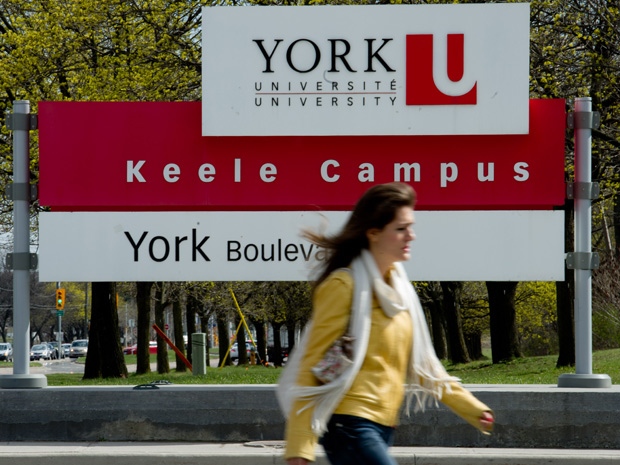It is tempting to view the recent controversy at York University, in which the administration apparently admonished a professor who refused a student’s request to be excused from work with female students on religious grounds, as just another in a long line of “reasonable accommodation” disputes in Canada.
The need for reasonable accommodation lies at the core of multiculturalism, a policy that reflects the basic idea that individuals should be accorded the liberty to retain and exercise cultural and religious practices and beliefs. But because this must happen within the context of a broader liberal democratic society, it routinely comes into conflict with other rights and values.
This can create a difficult balancing act. Should a Muslim man who owns a barbershop be required by law to cut a woman’s hair? Can a Sikh boy wear his ceremonial kirpan (a blunted dagger) to school? These are difficult questions which include competing concerns, as they pit religious freedom against equality, or (in the latter case, theoretically) the safety of other students. In other words, it is not always obvious how to reconcile competing rights or values when dealing with disputes over reasonable accommodation.
The York University case, however, is not one of those times. In fact, the incident is emblematic of a pernicious pattern within university administration where decision-makers have completely lost sight of the “reasonable” in reasonable accommodation, and where common sense has fallen to the wayside in dealing with anything that threatens to offend a campus member’s personal sensibilities. An especially problematic element of this pattern is universities’ inability to defend free speech on campuses, as every year it seems public speaking events of various sorts are allowed to be cancelled or interrupted because some small segment of the campus population are “offended” by the invited speaker’s presence.
In rejecting the student’s request to not have to meet with his female peers, the professor in this case was upholding a fundamental principle of equality: segregating students at a public institution in Canada is anathema to basic liberal democratic values and very likely contrary to constitutionally-entrenched Charter rights (the Charter does not apply to universities in all contexts, but that is a technical legal question I will avoid digressing into for now). And despite having to turn down a demand premised on what was presumably an honestly-held religious belief, the professor correctly determined the negative impact of doing so clearly meant that accommodating this particular request was patently unreasonable.
I do not for one second believe that the dean, who reportedly ordered this professor to accede to the student’s request (the professor, admirably, has not given in), did so because he is sexist. Far more likely is that, like university administrators across the country, the dean in this case is subsumed in an institutional culture that is overly bureaucratized, paranoid about negative publicity (an irony here, of course), risk-averse, increasingly prone to treating students as customers instead of students, and fearful about litigation.
When I contemplate the number of stakeholders that the generally smart, hardworking women and men who take on roles as university administrators have to consider – including governments, students (and their parents), alumni, faculty (especially those who write inconvenient op-eds), staff, research partners, private sector organization, and donors – it is a wonder that we do not see more bone-headed decisions, or even simple institutional paralysis. It is also worth noting that university campuses like York’s have student populations larger than most Ontario towns. With that comes diversity, complexity, and sometimes conflict.
But while there may explanations for why such poor decision-making occurs, there is no real excuse for the position of York University in this case. I do not envy the many difficult choices university administrators face in today’s climate, but this one was easy and they got it spectacularly wrong. Particularly embarrassing for York is the fact that its “human rights office” apparently also agreed with the dean’s decision.
Controversies over reasonable accommodation happen in many different contexts and it should be no surprise that universities are no stranger to them. What is disturbing is an apparent increasing tendency to view each claim for accommodation as legitimate and worthy of support. Indeed, the notion that not all claims should be accepted would come as a shock to the morally relativistic fingernail biters that roam the hallways in some academic buildings.
The administration at York appears to have lost sight of their most important responsibility to students, which is not to shield each individual student from the real world or attempt to provide them with their own morally idyllic experience. Rather, universities must cultivate an educational environment that is most conducive to student learning for the student body writ large and for the generation and dissemination of knowledge. This means that certain basic societal values are inviolable and that, to the extent universities help to develop more active, engaged and responsible citizens, they are duty bound to avoid transforming every individual student’s belief – religiously-held or otherwise – into some perverted, sacrosanct version of “the customer is always right.”
Emmett Macfarlane is an assistant professor of political science at the University of Waterloo. He is the author of Governing from the Bench: The Supreme Court of Canada and the Judicial Role. You can follow him on Twitter
The fear of offending is sapping universities of common sense




















Laissez un commentaire Votre adresse courriel ne sera pas publiée.
Veuillez vous connecter afin de laisser un commentaire.
Aucun commentaire trouvé